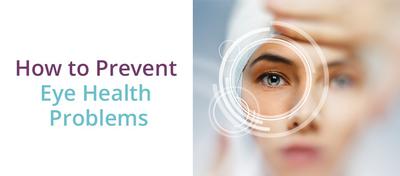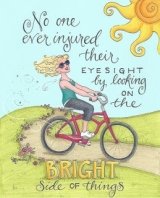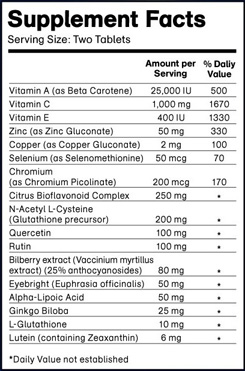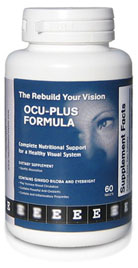How to Prevent Eye Health Problems
by Emily Hunter
(USA)

Eye health may not carry the same buzz of awareness that topics like heart disease or weight management do; however, there are key preventative steps that are necessary to maintain healthy eyesight and avoid major issues as we age. We depend on our eyes at every turn, and though occasionally they may twitch or tire or itch or tear, often we rely on their support and take little care or notice outside of the occasional eye drops or cucumber slice. The following are a few ways to show some gratitude and steer clear of the major eye related illnesses. As varied as the illnesses are, it is interesting to observe that many call for the same cautionary measures.
No Smoking:
One of the biggest detrimentsto eye health is the use of tobacco. Smoking has been shown to correspond with increased risk of diabetic retinopathy, cataracts, dry eye, and age related macular degeneration. It is a hard habit to break and you don’t have to do it all at once or do it alone. Establish a support team, anticipate the challenges, and set your coping strategies in place ahead of time. For example, if you know that you like to smoke with your coffee, consider creating a new routine with some green tea and gentle stretching, or go to a café with a friend who doesn’t smoke. And if you’re not ready to quit, think about cutting back, if not for you, then for your eyes.
Get to Know your Family Tree:
On the other side of the way that you were brought up is the way that you were born (nature). You were given a whole host of traits from your family. Get curious about your family’s health history. Were there any great aunts and uncles diagnosed with glaucoma or cataracts? In addition to glaucoma and AMD, or age-related macular degeneration, strambismus (cross-eyes), amblyopia (lazy eye), and refraction errors like myopia (nearsightedness), hyperopia (farsightedness), and astigmatism all have a certain genetic predisposition. If you can anticipate these in your family tree, you can work with your eye surgeon or ophthalmologist in advance to be vigilant for symptoms and form a treatment plan.
Get to Know your Ophthalmologist:
Even if your family history doesn’t show a pattern of eye disease, it’s still a good idea to go see your ophthalmologist regularly for eye exams. Visual acuity tests can tell whether you might need a change in eyeglass or contact lens prescription, and a dilated-eye exam can be used to detectany concerning signs of disease. Need a rule of thumb? If you’re over 30, schedule a dilated eye exam every three to five years, and more frequently if your family history is risky. If you’re over 60, schedule one annually.
Diet and Exercise:
Another proactive way to prevent problems is to keep a healthy weight. Your weight may not seem directly related to your eye health; however, obesity is shown to be associated with AMD, glaucoma, cataracts, and diabetic retinopathy. Part of the connection is that the strain caused on the pulmonary system by the excess weight also negatively affects the blood vessels in the eyes; the rest of the picture is a little fuzzier. It may simply be that obesity often goes hand in hand with a sedentary lifestyle and extreme diet that takes its toll on the whole body, eyes included. And although all exercise is good, whether it’s on the yoga mat, the climbing gym, or the dance studio, it has been found that strong energetic movement, like running, can help avert the eye issues that are most related to time – cataracts and macular degeneration.
In addition to daily exercise and an overall healthy diet, incorporate specific foods that will provide your eyes with the nutrients they need. Oranges, strawberries, and leafy greens are a great source for vitamin C, while turkey and chicken can supply zinc. Almonds and peanut butter have plenty of vitamin E, and salmon, or other fishes, can deliver those essential omega-3s. Lutein and zeaxanthin are found to fortify the macula and retina and can be found in spinach, kale, sweet corn, peas, and broccoli. If you struggle with chronic dry eye, it’s advisable to integrate more vitamin A into your diet with foods like cantaloupe, carrots, and mangos.
Protect your Eyes from Environmental Factors:
Finally, take your environment into consideration. When you’re out in the sun, wear sunglasses to protect your eyes from UVB and UVA rays just as you would wear sunblock to protect your skin. If you live in a very dry climate and your eyes are often irritated, purchase a humidifier to help moisten the air. If you’re playing intense sports or dealing with harsh chemicals, protect your eyes with a pair of goggles. And if your job or hobby requires a lot of concentrated visual focus, take a break every 20-30 minutes to allow your gaze to rest and soften.
Your eyes might be small and largely self-sufficient, but with a little extra TLC from you and your ophthalmologist, they will not only age gracefully, but with ease.
**
Emily Hunter crafts content on behalf of the eye surgeons at Eyecare 20/20. In her spare time, she cheers for Spirit of Atlanta, Carolina Crown and Phantom Regiment, creates her own sodas, and crushes tower defense games. Follow her on Twitter at @Emily2Zen

Subscribe to EyeSight Vision Care!, our monthly newsletter with in depth information to help you keep up to date on how to Protect Your Eyesight with a free bonus. Fill out the form below. You'll then receive an email asking you to confirm that you subscribed. You'll always have the option to unsubscribe at the click of your mouse.
More Information








